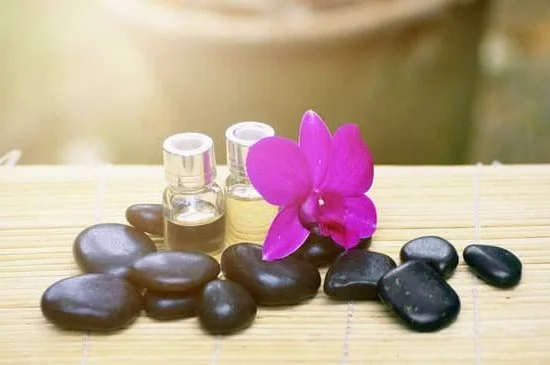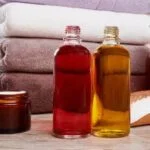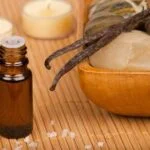Aromatherapy has been used for centuries as a natural healing remedy, and the use of aromatherapy oils has gained popularity in modern times for their various benefits. In this article, we will delve into the world of aromatherapy oils, exploring their many uses and advantages. Whether you are looking to relieve stress, enhance mental clarity, or promote physical healing, aromatherapy oils offer a natural and holistic approach to wellness.
Aromatherapy oils come in different forms, including essential oils, carrier oils, and hydrosols. Each type of oil serves a specific purpose and offers unique benefits for the mind and body. Understanding the differences between these oils will help you make informed choices about which ones to incorporate into your aromatherapy practice.
In the following sections, we will highlight some of the most popular aromatherapy oils and their healing properties. From stress relief and relaxation to mental clarity and physical healing, there is an aromatherapy oil for every need. Additionally, we will discuss various methods of using aromatherapy oils, such as diffusers, inhalation, and topical application. Whether you are new to aromatherapy or looking to expand your knowledge, this article will provide valuable insights into the world of aromatherapy oils.
Understanding the Different Types of Aromatherapy Oils
Essential Oils
Essential oils are highly concentrated plant extracts that are derived through methods such as steam distillation or cold pressing. These oils contain the natural aroma and beneficial properties of the plant from which they are extracted. Essential oils are commonly used in aromatherapy for their therapeutic effects, including stress relief, relaxation, pain relief, and more. Some popular essential oils include lavender, peppermint, tea tree, and eucalyptus.
Carrier Oils
Carrier oils, also known as base oils or vegetable oils, are gentle and mild oils that are used to dilute essential oils before applying them to the skin. Carrier oils help “carry” the essential oil onto the skin and also provide their own set of benefits. Common carrier oils include jojoba oil, almond oil, coconut oil, and olive oil. These oils are often used in massage therapy and skincare products due to their moisturizing and nourishing properties.
Hydrosols
Hydrosols, also referred to as floral waters or plant waters, are produced during the process of steam distillation when extracting essential oils from plants. They have a subtle aroma and contain some of the water-soluble components of the plant along with traces of essential oil. Hydrosols can be used in skincare products, as facial toners, or added to bathwater for a fragrant and soothing experience. Common hydrosols include rose water, lavender water, chamomile water, and neroli water.
Understanding the differences between these types of aromatherapy oils is important for selecting the appropriate oil for specific needs and applications. Whether using essential oils for therapeutic purposes or incorporating carrier oils into skincare routines, choosing high-quality options is key to experiencing the full benefits of aromatherapy.
The Top 10 Most Popular Aromatherapy Oils and Their Healing Properties
Aromatherapy oils have been used for centuries to promote physical, mental, and emotional well-being. These essential oils are derived from various plants and have a wide range of healing properties. Here is a list of 10 popular aromatherapy oils and their specific benefits:
- Lavender: Known for its calming and soothing effects, lavender oil is often used to promote relaxation and improve sleep quality.
- Chamomile: This gentle oil is ideal for reducing stress, anxiety, and inflammation, making it a popular choice for aromatherapy massages.
- Bergamot: With its citrusy aroma, bergamot oil is frequently used to uplift the mood and alleviate symptoms of depression.
- Peppermint: A refreshing oil that can enhance mental clarity, reduce fatigue, and relieve headaches and nausea.
- Rosemary: This herbaceous oil is known to boost memory retention, improve focus, and provide relief from muscle pain.
- Lemon: The invigorating scent of lemon oil can help enhance concentration, elevate mood, as well as purify the air in your surroundings.
- Eucalyptus: Widely recognized for its ability to clear nasal congestion and relieve respiratory issues such as asthma and bronchitis.
- Tea Tree: Renowned for its antimicrobial properties that make it effective in treating acne, fungal infections, and skin irritations.
- Frankincense: This earthy oil has powerful anti-inflammatory effects that can aid in reducing joint pain and promoting overall wellness.
These are just a few examples from the extensive list of aromatherapy oils available. When choosing an essential oil for your own aromatherapy needs, it’s important to consider your specific health goals and preferences in order to fully benefit from their therapeutic properties. Always remember to purchase high-quality oils from reputable sources to ensure safety and efficacy.
Aromatherapy Oils for Stress Relief and Relaxation
When it comes to managing stress and promoting relaxation, aromatherapy oils can be incredibly beneficial. Lavender, chamomile, and bergamot are among the most popular choices for those seeking relief from daily stressors.
Lavender oil is well-known for its calming properties and is often used to promote relaxation and improve sleep quality. Numerous studies have shown lavender oil to be effective in reducing anxiety and even lowering blood pressure.
Chamomile oil is another powerful essential oil that can help alleviate stress and anxiety. Its soothing and anti-inflammatory properties make it a great choice for relaxation, and it is commonly used in aromatherapy to induce a sense of calm.
Bergamot oil, derived from the peel of the bergamot fruit, has a citrusy and floral aroma that is both uplifting and calming. This unique combination makes it an excellent choice for reducing stress and promoting relaxation.
In addition to their individual benefits, these three essential oils can also be blended together to create a synergistic effect that enhances their stress-relieving properties. Whether used in a diffuser, applied topically, or added to a bath, lavender, chamomile, and bergamot oils are versatile options for those looking to incorporate aromatherapy into their stress management routine.
| Aromatherapy Oil | Healing Properties |
|---|---|
| Lavender | Calming, promotes relaxation, improves sleep quality |
| Chamomile | Soothing, anti-inflammatory, reduces anxiety |
| Bergamot | Uplifting, calming, reduces stress |
Aromatherapy Oils for Mental Clarity and Focus
When it comes to boosting mental clarity and focus, aromatherapy oils can be incredibly effective. Peppermint, rosemary, and lemon are among the most popular choices for their uplifting and invigorating properties. These essential oils can help sharpen the mind, increase alertness, and promote a sense of concentration.
Peppermint oil is known for its refreshing scent that can help stimulate the mind. It is often used to combat fatigue, improve focus, and enhance cognitive performance. Rosemary oil has been traditionally used to improve memory retention and mental alertness. Its woody fragrance is believed to promote mental clarity and strengthen mental acuity. Lastly, lemon oil is valued for its ability to uplift the mood and boost concentration. Its citrusy aroma can help clear the mind and enhance cognitive function.
When using aromatherapy oils for mental clarity and focus, there are several methods of application to consider:
- Diffusion: Add a few drops of your chosen essential oil to a diffuser to fill the air with its invigorating scent.
- Inhalation: Place a drop of oil on a tissue or handkerchief and inhale deeply whenever you need a mental boost.
- Topical Application: Dilute the essential oil with a carrier oil such as jojoba or almond before applying it to pulse points or temples.
In order to experience the full benefits of these aromatherapy oils, it’s important to choose high-quality options that are pure and organic. Look for sustainably sourced oils from reputable suppliers to ensure that you are getting the best quality product. With their stimulating properties, peppermint, rosemary, and lemon essential oils can be powerful tools for improving mental clarity and enhancing focus in your daily life.
Aromatherapy Oils for Physical Healing and Pain Relief
Aromatherapy oils have been used for centuries to promote physical healing and relief from various types of pain. In this section, we will explore the beneficial properties of three popular aromatherapy oils that are known for their ability to alleviate physical discomfort: eucalyptus, tea tree, and frankincense.
Eucalyptus Oil
Eucalyptus oil is renowned for its anti-inflammatory and decongestant properties. It is often used to relieve respiratory issues such as coughs, colds, and sinus congestion. The oil can be applied topically to the chest or used in a diffuser to help clear the airways and promote easier breathing. Additionally, eucalyptus oil has analgesic properties that can provide relief from muscle pain and arthritis discomfort when applied to the affected areas.
Tea Tree Oil
Tea tree oil is well-known for its antimicrobial and antiseptic properties, making it ideal for treating cuts, wounds, and skin infections. When diluted with a carrier oil, tea tree oil can be applied topically to alleviate discomfort and promote healing. It can also be added to bath water to soothe sore muscles or used in a massage blend for targeted pain relief.
Frankincense Oil
Frankincense oil has been valued for its anti-inflammatory and analgesic properties since ancient times. It is commonly used to reduce joint pain associated with conditions like osteoarthritis and rheumatoid arthritis. The oil can be diluted with a carrier oil and massaged into affected joints or added to a warm compress for soothing relief. In addition to its physical healing properties, frankincense oil is also prized for its calming effects on the mind and emotions.
By incorporating these aromatherapy oils into your wellness routine, you can experience natural relief from physical discomfort while enjoying their delightful scents. Whether used individually or in combination with other oils, eucalyptus, tea tree, and frankincense oils offer holistic benefits for overall well-being.
How to Use Aromatherapy Oils
Aromatherapy oils can be used in a variety of ways to maximize their therapeutic benefits. The most common methods of using aromatherapy oils include diffusion, inhalation, and topical application. Each method has its own advantages and is suitable for different purposes.
Diffusing aromatherapy oils is one of the most popular ways to enjoy their aromatic and therapeutic properties. This method involves dispersing the oil particles into the air, allowing them to be inhaled and absorbed by the body. Diffusers come in various types, including ultrasonic, nebulizing, heat, and evaporative diffusers. Some of the best essential oils for diffusing include lavender, eucalyptus, and peppermint.
Inhalation is another effective way to use aromatherapy oils. This can be as simple as adding a few drops of oil to a bowl of hot water and inhaling the steam or using a personal inhaler with a cotton wick to carry the aroma with you throughout the day. Aromatherapy inhalation is known for its quick effects on mood, stress relief, and mental clarity. Oils such as chamomile, bergamot, and rosemary are great for inhalation purposes.
Lastly, topical application involves applying diluted aromatherapy oils directly to the skin. This can be done through massage oils, lotions, balms, or simply adding a few drops of oil to a carrier oil before applying it to the skin. Topical application is ideal for targeting specific areas of pain or tension in the body. Eucalyptus, tea tree, and frankincense are some examples of essential oils commonly used for physical healing and pain relief through topical application.
| Aromatherapy Method | Example Oils |
|---|---|
| Diffusion | Lavender, Eucalyptus |
| Inhalation | Chamomile, Bergamot |
| Topical Application | Eucalyptus, Tea Tree |
Tips for Choosing and Purchasing High-Quality Aromatherapy Oils
In conclusion, incorporating aromatherapy oils into your daily routine can offer numerous benefits for your overall well-being. Whether you are seeking stress relief and relaxation, mental clarity and focus, or physical healing and pain relief, there are a variety of essential oils, carrier oils, and hydrosols to choose from. By understanding the different types of aromatherapy oils and their healing properties, you can select the best options to meet your specific needs.
When it comes to purchasing high-quality aromatherapy oils, it is important to prioritize organic, pure, and sustainably sourced options. This ensures that you are using products that are free from harmful chemicals and pesticides, as well as supporting environmentally-friendly practices. Look for reputable suppliers that provide detailed information about their sourcing methods and production processes to guarantee the purity and authenticity of the oils.
In addition to choosing the right aromatherapy oils, knowing how to use them effectively is essential for maximizing their benefits. Whether through diffusers, inhalation, or topical application, incorporating these oils into your self-care routine can promote a sense of calm, focus, and rejuvenation. With the wide range of options available in the list of aromatherapy oils, there is something for everyone to explore on their journey towards holistic wellness.
Frequently Asked Questions
What Are the 10 Best Essential Oils to Try for Aromatherapy?
Some of the best essential oils for aromatherapy include lavender, peppermint, eucalyptus, tea tree, lemon, rosemary, chamomile, ylang-ylang, bergamot, and sandalwood. Each oil has its unique benefits and uses in aromatherapy.
How Many Aromatherapy Oils Are There?
There are more than ninety commonly used essential oils in aromatherapy. These oils are derived from various plants and have different properties and benefits. While there are countless essential oils available, some are more commonly used than others for their therapeutic effects.
What Are the Top 20 Essential Oils?
Some of the top 20 essential oils include popular options like lavender, lemon, peppermint, tea tree, eucalyptus, chamomile, rosemary, bergamot, ylang-ylang, geranium, patchouli, cedarwood, frankincense orange sweet basil etc. Each of these oils offers a range of physical and emotional benefits when used in aromatherapy practices.

Are you looking for a natural way to improve your health and wellbeing?
If so, aromatherapy may be the answer for you.





